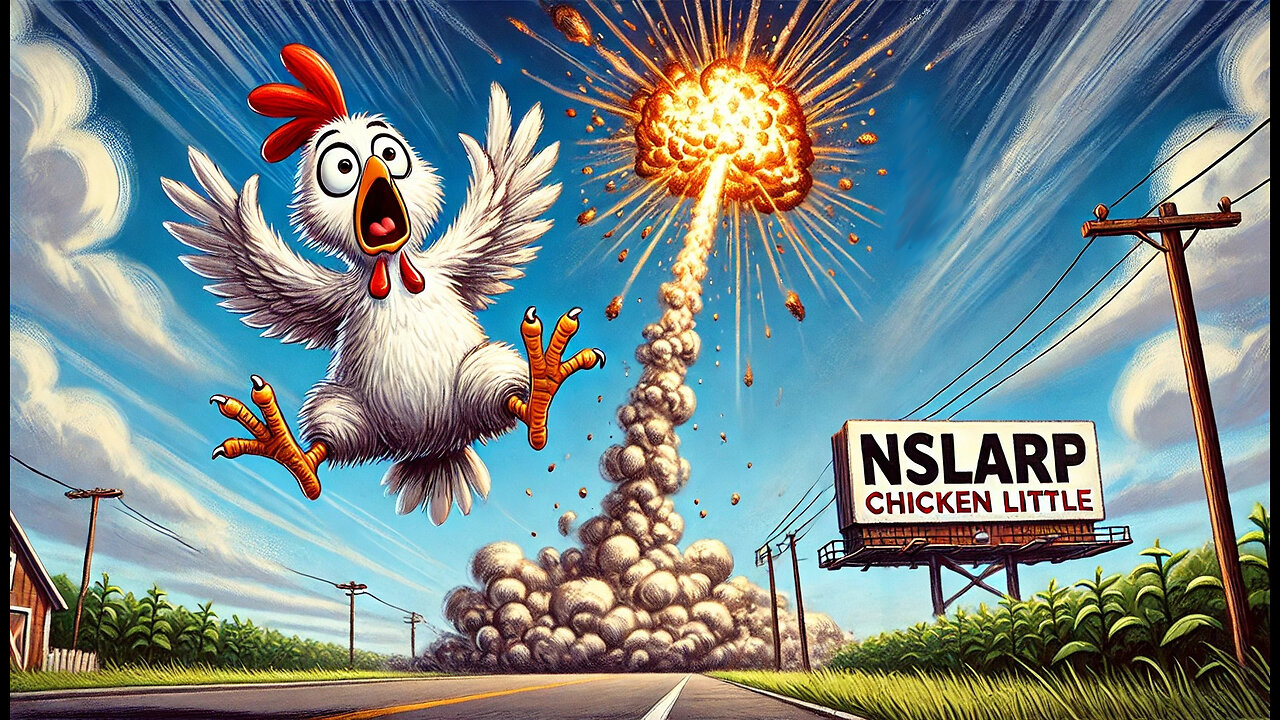Premium Only Content

The Chicken Little Onion | Is The Sky Really Falling?
It’s always something, isn’t it? A production error here, a mechanical failure there. A tired pilot, a distracted technician, a stressed-out air traffic controller—someone, somewhere, who didn’t do their job quite right. That’s what they tell us. That’s always what they tell us.
When a Jeju Air flight slammed into the runway in South Korea, they blamed wind shear—a weather phenomenon pilots are trained to handle. When a Learjet burst into flames over Philadelphia, investigators cited engine failure. The blackout that plunged Heathrow Airport into chaos? Faulty wiring in a transformer—just a freak accident, they said. And when SpaceX’s Starship scattered flaming debris across Florida beaches, they called it a learning experience—a calculated risk in the name of progress.
At first, these explanations seem reasonable. Each incident has a cause—a box you can check, a mistake you can point to. But what happens when those explanations start piling up? When a week of accidents starts to feel like a pattern? When the supposed “one-in-a-million” events start arriving one after another?
Something’s not adding up. These aren’t budget airlines cutting corners. They aren’t rogue mechanics skipping steps in maintenance. These are mainstream carriers, established airports, and carefully controlled flight tests. Each failure—whether it's a plane, a rocket, or an entire power grid—happened inside a system that was supposedly working as intended.
So what’s really going wrong? Maybe there’s something deeper at play—something slipping quietly beneath the surface of every investigation. Not a single mistake, but a hidden flaw that doesn’t fit neatly into a headline.
They’ll keep telling us it’s pilot error. Or mechanical fatigue. Or some tired old story about bad luck. But if you peel back the layers, you might just start to see a pattern.
-
 LIVE
LIVE
vivafrei
21 hours agoEp. 278: D.C. Peace Wave! Big Tish & Nipple Judge SPANKED! "Maryland Man" Trafficker FREE & MORE?
7,420 watching -
 LIVE
LIVE
Nerdrotic
1 hour agoMysteries of 3I/ATLAS | Forbidden Frontier #113
675 watching -
 11:52
11:52
Exploring With Nug
1 hour agoWhat’s Hiding Under This Dallas Lake We Found a Vehicle!
6543 -
 2:59:09
2:59:09
Barry Cunningham
7 hours agoBREAKING NEWS: PRESIDENT TRUMP SET TO TAKEOVER CHICAGO AND BOSTON!
16.2K16 -
 LIVE
LIVE
SpartakusLIVE
1 hour agoThe BADDEST Duo in WZ Exhibits PEAK Physique || Duos w/ Sophiesnazz to start, quads later
519 watching -
 LIVE
LIVE
LumpyPotatoX2
2 hours agoSunday Funday on HellDivers - #RumbleGaming
123 watching -
 3:11:52
3:11:52
Esports Awards
4 hours agoEsports Awards: Decade Awards 2025
41.2K3 -
 1:02:58
1:02:58
Sarah Westall
2 hours agoMILITARY WHISTLEBLOWER: How Social Media Military Level Psyops are Manipulating You w/ Patrick Bergy
6.03K4 -
 30:41
30:41
Stephen Gardner
2 hours ago🔥WHITE HOUSE GETS UNEXPECTED BIG WIN!
10.4K14 -
 9:39
9:39
MattMorseTV
4 hours ago $0.31 earnedVance just DROPPED a BOMBSHELL.
10.4K41